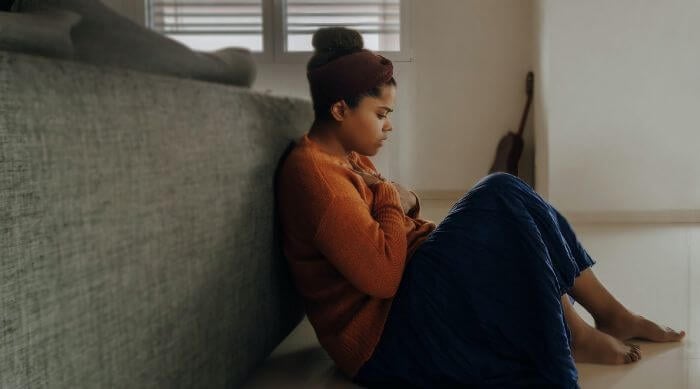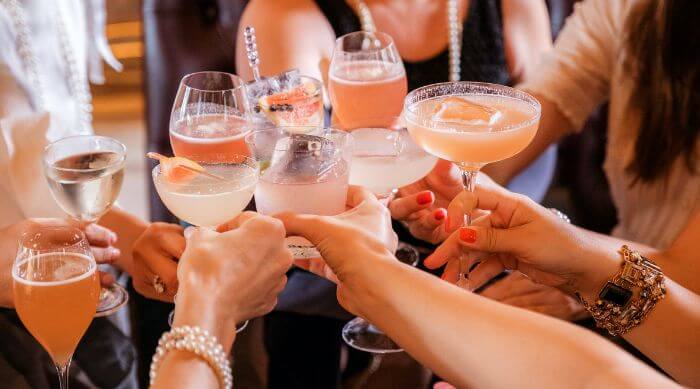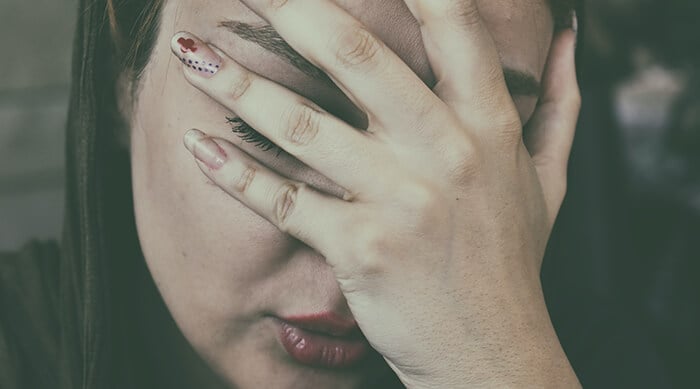As we advance in healthcare and psychiatry sciences, we’re beginning to understand how important nutrition is for mental health. We know alcohol affects us physiologically in the short term, but what have we learned about its long-term impact on our minds? Can alcohol worsen anxiety?
The short answer is yes — alcohol affects anxiety. We’ll break down the science and offer some alternative coping mechanisms. And if you love wine but don’t want to trigger anxiety, we’ve got a good solution for you.
(Hint: it’s Surely’s nonalcoholic wine.)
How Alcohol Impacts Anxiety
If you don’t have a substance abuse disorder, unwinding with a glass of wine after a stressful day can be fine, provided you drink mindfully. However, it can also become a vicious cycle. Here’s how it works.
Alcohol can temporarily dull the symptoms of anxiety. The problem is alcohol does this by impacting our brain chemistry. Neurotransmitters like GABA, dopamine, and serotonin all work together to regulate your mood. Lower amounts of alcohol can stimulate GABA — making us more relaxed — but large amounts of alcohol have the opposite effect and can lead to panic attacks.
In fact, alcohol abuse often coexists with anxiety disorders. About a third of people with alcohol addiction have suffered from either depression or anxiety.
Even if you don’t overdo it, moderate alcohol consumption can cause anxiety symptoms to worsen after the initial calming effects have worn off. In any case, frequently self-medicating with a cocktail can quickly lead to alcohol dependence.
Statistically, anxiety and alcohol use disorder (AUD) that present together can create a chicken-or-egg conundrum. Does the alcohol cause anxiety, or does the anxiety lead to an increased likelihood of AUD? The answer isn’t clear.
Why do I have anxiety after drinking? You may experience anxiety after drinking when the spike of feel-good brain chemicals (GABA and serotonin) induced by the alcohol begin to crash.
Change Your Relationship with Alcohol
Anxiety is tough enough on its own. Here are a few tips to help you explore and redefine your relationship with alcohol.
1. Take Some Notes
If your drinking habits have specific triggers or patterns, it’s important to examine them. Once you know why you tend to reach for a drink, you can move forward with a clear purpose.
2. Set Some Goals
Give yourself some realistic goals for the habits you want to change. Do you want to stop drinking? Do you want to adopt a “Rule of 3” approach and only drink 3 days per week? Do you want to try a Dry Month challenge with a support group of other people working toward the same goal?
3. Sip Slowly When You Do Drink
Do your central nervous system a favor and cut out the shots. If you don’t want to completely nix the alcohol, at least savor the moment. Order good drinks that you want to enjoy and take your time drinking them. Drinking with some intention will not only ground you in the moment but will also help you to consume less in a given time frame.
4. Get Someone Else Involved
Habit changes are hard. Talk to a loved one and share your plan. If you’re nervous about discussing it with friends, talk to your healthcare provider about your goals. They’ll be able to help you find any resources you might need.
5. Embrace Alternatives
Alcohol-free and alcohol-removed beverages are flooding the market. There’s no shortage of options if you want to try new drinks. And we’re not talking grape juice! Surely offers a variety of non-alcoholic wines, but you’re not limited to wine. Here are our favorite non-alcoholic beers and spirits to check out.
6. Don’t Be Ashamed to Ask for Help
If heavy drinking has been your lifestyle and you’ve started struggling with feelings of anxiety, you might be worried about the potential stress of alcohol withdrawal symptoms. Don’t let that stop you — there may be a co-occurring disorder treatment center in your area. These centers specialize in addressing both substance abuse and mental health needs at the same time.
If you need help finding support or medical advice, you can contact:
Symptoms & Types of Anxiety Disorders
Anxiety comes from our bodies’ mechanisms for signaling danger or stress. If we feel threatened, we produce more cortisol (the stress hormone). This hormone causes a sugar spike in the bloodstream and prioritizes the functions you need for fight-or-flight situations. A rush of cortisol is your body’s way of pulling the fire alarm.
This alarm system is essential to our physiology, and we need it to survive threatening situations. However, if our bodies have trouble regulating the system, it can lead to anxiety. Anxiety disorders are quickly becoming the most common mental illness in the United States.
People experience different types and levels of anxiety. In general, we associate anxiety with signs and symptoms like:
- Restlessness
- Difficulty breathing
- Elevated heart rate or palpitations
- Inability to concentrate
- Nausea and vomiting
Some of the more common types of anxiety include:
Generalized Anxiety Disorder: GAD is chronic anxiety or worry throughout daily life, with little to no provocation.
Obsessive-Compulsive Disorder: OCD involves constant uncontrollable thoughts (or obsessions). Repetitive or compulsive behaviors are performed in an attempt to stave off the obsessions. Performing such rituals — like cleaning, counting, or touching things in a certain way — can provide temporary relief.
Post-Traumatic Stress Disorder: PTSD, as the name implies, develops after a traumatic event. Assaults, accidents, military combat, or natural disasters can all trigger PTSD.
Social Phobia or Social Anxiety Disorder: Social anxiety presents as an overwhelming insecurity in typical social situations. This may include fear of public speaking, eating with other people, or shopping in crowded stores.
Panic Disorder: Panic disorders are chronic panic attacks — episodes of intense fear or anxiety with most of the symptoms listed above presenting all at once.
Triggers & Coping
While there is no single factor that causes or influences anxiety, some contributing factors may include:
- Trauma
- Other mental health conditions, like depression
- Physical health problems like chronic illness
- Certain medications
- Stimulants like caffeine, nicotine, and excess sugar
- Stressful life circumstances, e.g., constant financial concerns, family drama, or a tense work environment
- Alcohol intake
Understanding the role alcohol plays on anxiety is complex, along with all the other factors involved. Consider these healthy self-care measures you can take to alleviate your anxiety:
- Mindfulness techniques like meditation, yoga, or deep breathing
- Calming practices like aromatherapy or massage
- Frequent physical exercise
- Talking to loved ones for support
- Cognitive behavioral therapy (CBT)
Skip unnecessary anxiety with Surely non-alcoholic wine.
If you suffer from anxiety and want to avoid the side effects of alcohol, we’ve got you covered. Even if you’re nowhere near having a substance use disorder, it’s always a good idea to cut back while you explore treatment options for anxiety — or any mental health condition.
While you’re seeking anxiety relief, you can still unwind with the ritual of a nice glass of wine, thanks to Surely. Check out our non-alcoholic pinot noir for a cozy evening in or celebrate a milestone with our sparkling brut!


![Cure Your Wine Hangover [Plus Prevention Guide]](https://dropinblog.net/cdn-cgi/image/fit=scale-down,width=700/34240221/files/featured/wine-hangover.jpg)

